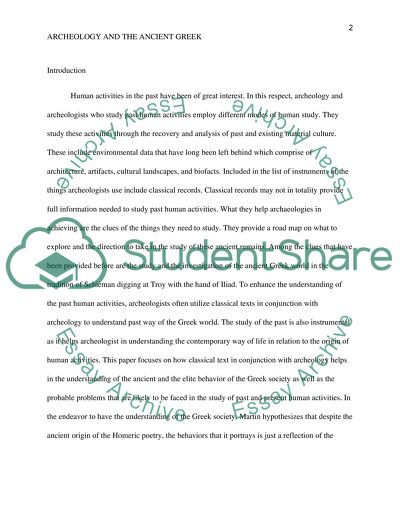Cite this document
(“How can we combine Homeric texts and archeology to learn more about Essay”, n.d.)
Retrieved de https://studentshare.org/archaeology/1492642-how-can-we-combine-homeric-texts-and-archeology-to
Retrieved de https://studentshare.org/archaeology/1492642-how-can-we-combine-homeric-texts-and-archeology-to
(How Can We Combine Homeric Texts and Archeology to Learn More about Essay)
https://studentshare.org/archaeology/1492642-how-can-we-combine-homeric-texts-and-archeology-to.
https://studentshare.org/archaeology/1492642-how-can-we-combine-homeric-texts-and-archeology-to.
“How Can We Combine Homeric Texts and Archeology to Learn More about Essay”, n.d. https://studentshare.org/archaeology/1492642-how-can-we-combine-homeric-texts-and-archeology-to.


